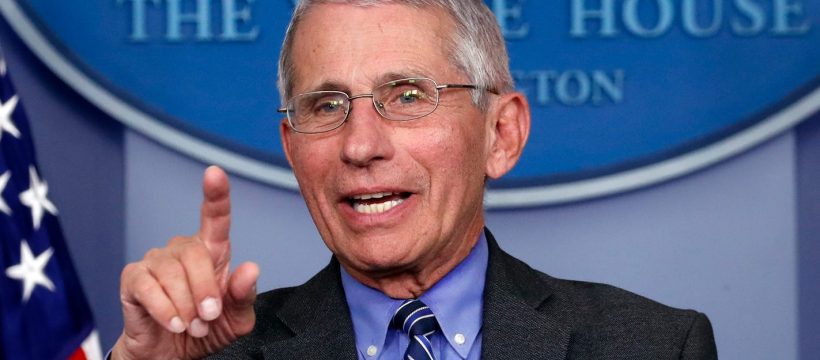Dr. Anthony Fauci, the nation’s most prominent epidemiologist, on Friday added his voice to the body of experts describing the need for coronavirus testing of college athletes when moratoriums on the athletes’ on-campus activities begin to lift.
The NCAA Division I Council voted this week to allow such activities to resume June 1, and on Friday, the Southeastern and Big 12 conferences established return-to-activity dates.
The SEC is allowing all athletes to return for voluntary workouts June 1. The Big 12 is allowing football players to return June 15; volleyball, soccer and cross country athletes July 1 and other athletes July 15.
Fauci, the director of the National Institute of Allergy and Infectious Diseases, gave an interview to The Chronicle of Higher Education in which he addressed a wide range of issues related to universities’ efforts to resume amid the pandemic.
He said one potential model is to “essentially test all the students before they come in, just so that you know what the baseline of infection is” and then do intermittent random surveillance testing of parts of the student population.
Asked about precautions that schools should take regarding athletes’ return, Fauci suggested a similar setup.
“The athletes that tend to come back the earliest are the football players,” he told The Chronicle. “That’s a very intensive contact sport. What I think would be important if they’re going to do that is to test all the players and make sure that when they do come in, they come in all negative at the same time and then do the same sort of surveillance of them and make sure the people who are associated with them — the people who serve their meals, the people who are involved in training with them — also are protected in the sense of wearing masks and doing social distancing to the extent possible.”
Separately, in an interview on an NCAA Twitter channel, the association’s chief medical officer, Brian Hainline, discussed a number of recent advances in testing the could dramatically increase the number of people who can be tested and/or the general availability of quick-result testing.
“I'm confident that a month from now, we're going to be in a much different place” regarding testing, Hainline said.
He later added: “We need to continue to ramp things up, but the way things are moving, we are all becoming more confident.”
???? ?????? ?????? | ?? ?
???????? ??? ???? ????????????? @NCAA Senior VP of Championships Joni Comstock and @FloridaGators Executive Associate AD Lynda Tealer join Dr. Brian Hainline and @TheAndyKatz. https://t.co/DZUn1GQULn
MORE: Coaches, ADs cash in on academic success as schools brace for financial woes
OPINION: SEC welcoming players back to campus, but no sign of adequate testing for coronavirus
CORONAVIRUS & SPORTS: Get the latest news and information right in your inbox. Sign up here.
In the interview with The Chronicle, Fauci said it is “very difficult to predict” whether schools would be able to have sports events with fans in attendance.
“It’s going to really depend on where the athletic event is taking place and what the dynamics of the particular outbreak or the particular level of infection are,” Fauci said. “Wyoming is obviously very different from New Orleans, which is very different from Utah and is very different from Chicago.
“If there’s very, very little infection in a community, you might have spectators. I don’t think you can have people sitting right next to each other with every seat occupied.”
Follow USA TODAY Sports' Steve Berkowitz on Twitter @ByBerkowitz.
Source: Read Full Article
